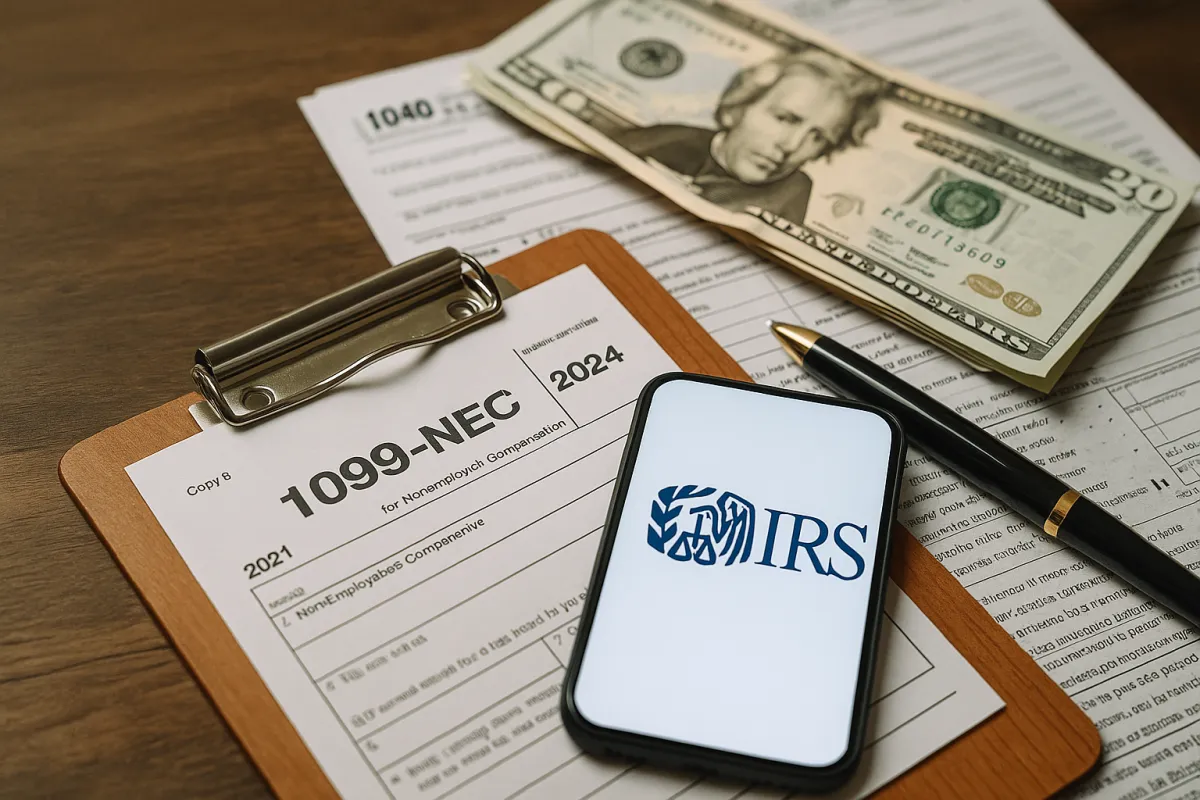
1099 Gets an Upgrade: Why Easier Reporting Might Be the Wake-Up Call Freelancers Didn’t Know They Needed
For years, freelancers and gig workers have navigated tax season with a mix of dread and duct tape—pulling together receipts, bank statements, and a handful of 1099 forms, hoping the IRS wouldn’t come knocking.
If you're nodding along, here's the big news:
1099 reporting is finally getting easier.
That sounds like a win—and in some ways, it is.
But here’s the twist: easier reporting also means easier targeting.
The IRS is about to see you more clearly than ever.
Are you ready for that?
The Shift: What’s Actually Changing
The IRS has rolled out new technology and streamlined reporting requirements to help platforms like Uber, DoorDash, Upwork, and even Etsy submit more consistent 1099-K and 1099-NEC forms.
Here’s what that means for you:
More platforms will send your income straight to the IRS
Thresholds are lower (as low as $600 in many cases—yes, really)
There’s less room for “gray area” or underreporting
So yes, you’ll probably receive more 1099s this year—and the IRS will, too.
Why That’s Not a Bad Thing—If You’re Paying Attention
Here’s the part most people miss:
This isn’t about the IRS “cracking down.” It’s about legitimizing freelance and gig work.
For years, independent workers have been treated like the “Wild West” of income. This shift means your work is being taken seriously—professionally, financially, and yes, legally.
And that means it’s time for you to start treating it that way too.
The Wake-Up Call: Side Hustle ≠ Side Responsibility
Just because your work is flexible doesn’t mean your finances should be.
If you’re still:
Mixing business income with your personal account
Tracking expenses in your head or not at all
Avoiding quarterly taxes because it’s “too confusing”
Hoping the IRS won’t notice a missing form
…it’s time to evolve.
1099 reporting is no longer something to “deal with later.”
It’s the starting point for smarter financial planning.
What Freelancers Should Do Right Now
Let’s skip the fluff. Here’s what to do this week to stay ahead of the curve:
🔹 Open a Dedicated Business Account
Stop mixing. Separate your freelance income and expenses now. It’s not just clean—it’s audit protection.
🔹 Track Everything—Even the Small Stuff
Subscriptions, mileage, software, supplies—it all adds up. Start capturing it now so you’re not scrambling later.
🔹 Understand Your Write-Offs
Don’t guess. Know what’s deductible and what’s not. Many gig workers leave money on the table simply because they assume they don’t “qualify.”
🔹 Plan for Quarterly Taxes
Even if you’re not required to pay them yet, simulate the process. It’s practice that will keep you out of trouble when you hit higher income levels.
🔹 Use This Visibility to Level Up
You’re being seen. So lean into it. Upgrade your systems, take your business seriously, and start thinking like a CEO—not a gig worker.
Final Thought: Visibility is a Form of Power
1099s aren’t just tax documents.
They’re receipts. Proof that your work exists. That your skills have value. That your business is real.
The IRS seeing your income clearly isn’t a threat—it’s an invitation.
An invitation to structure your hustle, protect your earnings, and scale with confidence.
You’ve got the freedom. Now build the foundation.